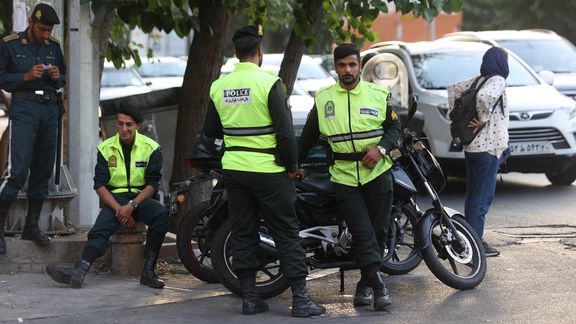Iranian Lawmaker Warns Hijab Crackdown Can Endanger The Regime

Hijab police patrols in Iran can lead to the overthrow of the regime, a lawmaker said Sunday as he criticized the government’s zeal to harass women in the streets.

Hijab police patrols in Iran can lead to the overthrow of the regime, a lawmaker said Sunday as he criticized the government’s zeal to harass women in the streets.
“The revival of the hijab patrols, under any label and by different methods will erode public trust,” Jalil Rahimi Jahanabadi, a member of parliament’s national security committee, told local media Sunday.
At the same time, the Islamic Republic’s parliament has expanded a proposed hijab bill from 15 to 70 articles, another lawmaker announced Sunday.
Anti-regime protests that began last September changed the mood of women who were more or less abiding by the clerical government’s compulsory hijab rules. For months now, thousands of women in cities are simply ignoring the requirement to cover their heads with long scarves and dress according to the government requirements.
Authorities who faced the most serious challenge to their rule in 44 years, backed down from confronting these women, fearing renewed protests. But this month they decided to re-deploy the morality or hijab police in the streets and immediately street confrontations began.
Jahanabadi said that the hijab crackdown is an insult to the people and will lead to more emigration of educated and professional groups from the country. Hijab police patrols will also create public fear and will agitate the people and turn to a new challenge for the Islamic Republic.

Other politicians and pundits have also warned that hijab crackdown can lead to new anti-regime protests, similar to when the killing of Mahsa Amini in September last year sparked unexpected nationwide protests. Although the unrest was triggered by an incident over hijab, but the underlying driving force was overall frustration with repression in general and economic hardship.
Jahanabadi did refer to the “deeply wounded” populace, that daily hears about “embezzlement, corruption and nepotism,” and also has to put up with an obligatory Islamic dress code. He implied in his remarks that those who continue to annoy and anger the people should know that they are sowing the seeds of “regime change.”
Hardliners, however, having the backing of Supreme Leader Ali Khamenei are determined to force women to back down. One explanation is that they want to subdue any dissent ahead of the protest anniversary in September.
Women and young people is what the regime fears most. Reports on Saturday said that security officials want to make sure the universities are pacified before September.
“The enemy has not given up. They’ve said that universities are the first place where new riots should begin,” the official in charge of Supreme Leader Ali Khamenei’s representatives in universities across the country, Mostafa Rostami, said at a gathering Friday.
In advocating for preventive measures, Rostami said, “They will completely be defeated if they can’t do something on the anniversary of last year’s riots.”
Although by killing more than 500 protesters and detaining more than 20,000 security and intelligence forces were able to stop street protests earlier this year, they are aware that the potential for another flare-up is real. The hijab crackdown now is some sort of tactic preferring to attack rather than be on the defensive.
At the same time, activists both inside Iran and abroad have been discussing on social media the importance of the protest anniversary to show the regime that the movement is alive and strong.